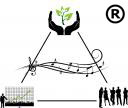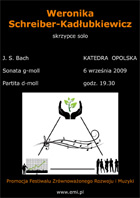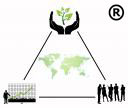In 2013 European Commission published the “Tips and Tricks for Advisors – Corporate Social Responsibility for Small and Medium-Sized Enterprises” . Quatation from this guidebook:
“This guidebook is based on the 2011 understanding of corporate social responsibility (CSR) developed by the European Commission, in which it is defined as, “the responsibility of entrprises for their impacts on society”. Furthermore it states that “Respect for applicable legislation, and for collective agreements between social partners, is a prerequisite for meeting that responsibility. To fully meet their corporate social responsibility, enterpises should have in place a process to integrate social, environmental, ethical, human rights and consumer concerns into their business operations and core strategy in close collaboration with their stakeholders, with the aim of:
– maximising the creation of shared value for their owners/shareholders and for their other stakeholders and society at large;
– identifying, preventing and mitigating their possible adverse impacts.
The complexity of that process will depend on factors such as the size of the enterprise and the nature of its operations. For most small and medium-sized enterprises, especially micro-enterprises, the CSR process is likely to remain informal and intuitive.””
The strategic thinking is the base of the implementation of CSR, we can say also the sustainable development rules. The way of implementation depends of the kind of enterpise but is the chalenge for all, the biggest and the smallest, even self-employment enterprises.
Everybody, every person, has to change the way of thinking and acting…
Kategoria: Sustainable development Blog, CSR | Komentarze wył. »
Czy zrównoważony rozwój to tylko hasło związane z funduszami unijnymi, czy też “prawidło” życia naszych czasów?
Uważam że:
- – naukowcy spotykają się na konferencjach, gdzie we własnym gronie dzielą się swoimi przemyśleniami na temat zrównoważonego rozwoju, bez szerokiego przekazu dla mediów, polityków i dla społeczeństwa;
- – w urzędach powstają dokumenty planistyczne niezbędne w procedurach pozyskiwania funduszy unijnych, w których zapis na temat zrównoważonego rozwoju ma miejsce, bo jest tam niezbędny ze względu na politykę Unii Europejskiej;
- – strategię zrównoważonego rozwoju duże przedsiębiorstwa publikują na stronach internetowych, ale głównie w celach marketingowych;
- – średnie i małe przedsiębiorstwa nic na ten temat nie wiedzą lub uważają z góry, że ich na to nie stać, że mają większe własne problemy;
- – wartości odżywcze żywności są coraz gorsze, rolnictwo jest bardziej nastawione na zysk niż na gospodarkę ziemią i produktami rolnymi w duchu zrównoważonego rozwoju;
- – koncerny farmaceutyczne i usługi medyczne głównie liczą się z zyskiem;
- – uczelnie zaznajamiają studentów z problematyką zrównoważonego rozwoju;
- – szkoły zaznajamiają uczniów z ekologią;
- – media wolą nagłaśniać wypadki transportowe i wpadki polityków…
Kategoria: Sustainable development Blog, CSR | Komentarze wył. »
“Firma ZR/SD” (in English: ZR/SD Firm) stands for “Firma Zrównoważonego Rozwoju,” or “Przedsiębiorstwo Zrównoważonego Rozwoju” (sustainable development company/enterprise).
A firm can be called a sustainable development company/enterprise if:
– in its vision statement it has included assurance of its existence and development in the specified remote future, along with respect to the environment and needs of local communities,
– and has transformed such a vision into a strategy of sustainable development in a manner which ensures control of its implementation,
– while its planning and operation management system has been adapted to reporting progress in pursuit of sustainable development,
– the strategy has been harmonized with EU, national and local strategies of sustainable development
– it has developed and announced a declaration of sustainable development culture.
Yearly Report in GRI format or a similar one is audited by independent organization and publicly available.
Kategoria: CSR, ZR/SD Enterprise | Komentarze wył. »
THE DECLARATION OF FIRM CULTURE IN THE SPIRIT OF SUSTAINABLE DEVELOPMENT should include the following declarations:
– declaration to implement a progress management system in pursuit of sustainable development;
– declaration to implement public domain annual reports pursuant to GRI (Global Reporting Initiative) recommendations or in a similar form and to have them audited by an independent entity (university, institute, consulting company, etc.);
– declaration to manufacture products or to provide services to the market which are gradually more energy-saving, water-saving, less material consumptive, with lower direct and indirect emission of CO2 and other greenhouse gases, with decreasing direct or indirect emission of all process pollutants, with growing share of green energy consumption from local materials, with minimization of waste and involvement of modern methods of waste disposal, with increasing role of recycling services of the sold products, commodities and services which do not have a negative impact on ecosystems (biodiversity), which do not imperil health of human beings, with extended lifecycle through facilitating availability of spare parts throughout the anticipated time of product use;
– declaration to use power, water and materials more sparingly for non-production purposes;
– declaration of becoming independent from power providers, taking into account green energy;
– declaration to minimize individual transportation needs and to optimize transportation fleet from the ecological and financial perspective;
– declaration to care about safety at work;
– declaration to educate employees on permanent basis, taking into account the role of literature, music (art) and physical exercise in development of creative individuals;
– declaration to support prevention of disease;
– declaration to support tolerance of cultural diversity;
– declaration to increase percentage share of green procurements;
– declaration to increase percentage share of orders from suppliers who respect the Charter of Fundamental Rights of the European Union, Charter of Human Rights;
– declaration of intensifying care about esthetic impression of the workplace and company premises, as well as about employees’ culture;
– declaration to care more about development of local and world community.
Signed by a person formally representing a given firm
Kategoria: CSR, ZR/SD Enterprise | Komentarze wył. »
Wanda Pazdan 16 Dec 2008
Culture can be defined as the whole complex ofproducts and human efforts, material and nonmaterial (i.e. spiritual, symbolic, such as mental and behavioral patterns).
THE DECLARATION OF COMMUNE CULTURE IN THE SPIRIT OF SUSTAINABLE DEVELOPMENT should include the following declarations:
– declaration to implement a progress management system in pursuit of sustainable development;
– declaration to implement public domain annual reports pursuant to GRI (Global Reporting Initiative) recommendations or in a similar form and to have them audited by an independent entity (university, institute, consulting company, etc.);
– declaration to care about safety, including, among others declaration to implement a Commune Energy Center with green energy, declaration to care about the quality of air, water, soil, biodiversity;
– declaration to implement a Commune Database, based on GIS, for strategic and operations management;
– declaration to minimize wastes and apply modern waste disposal methods;
– declaration to implement a commonly available sewerage and water supply system;
– declaration to minimize individual transportation needs and to optimize transportation fleet from the ecological and financial perspective;
– declaration to promote continuous education;
– declaration to support education which appreciates the role of literature, music (art) and physical exercise in development of creative individuals;
– declaration to promote prevention of disease;
– declaration to promote tolerance of cultural diversity;
– declaration to prevent social pathologies;
– declaration to promote changes in consumption patterns (music, art, physical culture are also legitimate consumer goods);
– declaration to increase percentage share of green procurements in the procurement pool;
– declaration to increase percentage share of orders from suppliers who respect the Charter of Fundamental Rights of the European Union, Charter of Human Rights;
– declaration to exercise greater care for clients, ergonomics and esthetic impression of the communal office and area of the commune as a whole, cultural heritage and culture of employees;
– declaration to initiate changes in education, health care, business, society, non-governmental organizations, in political life, and in the media in the direction of sustainable development.
Signed by the Head/Mayor/President of the City/Town
Kategoria: CSR, Competition Commune ZR/SD | Komentarze wył. »
ZR/SD Manager: sustainable development manager is a manager who through her or his activity and impact on the employees has managed to:
– formulate with her or his employees a vision statement concerning the development of the given organizational unit in the specified remote future, a vision in which economic development goes hand in hand with respect to the environment and the society,
– transfer the vision statement into a strategy of sustainable development and main strategy in a way which:
– enables them to control its implementation;
– ensures alignment of the form and goals with strategies of higher levels of administration, up to the EU;
– adjust planning and operation management system to reporting progress in pursuit of sustainable development;
– develop and implement a declaration of culture of the organization in the spirit of sustainable development;
– provide an atmosphere in which employees are encouraged to question status quo and to take risk;
– develop employee’s imagination and spirituality and to motivate them to continuous education;
– stimulate employee’s creativity.
By her or his activity they stimulate development of innovative products/services which deserve to be called sustainable development products/services. SD Manager supports cultural, health and educational projects.
Kategoria: CSR, Competiton - Manager ZR/SD | Komentarze wył. »
“Gmina ZR/SD” stands for ” zrównoważonego rozwoju” / sustainable development commune. In Polish “sustainable development” means “zrównoważony rozwój”.
Commune can be called a sustainable development commune if:
– in its vision statement it has included economical development in the specified remote future, along with respect to the world environment and needs of people on the world,
– and has transformed such a vision into a strategy of sustainable development in a manner which ensures control of its implementation,
– while its planning and operation management system has been adapted to reporting progress in pursuit of sustainable development,
– the strategy has been harmonised with EU strategy, national and local sustainable development strategies,
– it has developed and announced a declaration of the culture of sustainable development.
Kategoria: CSR, Competition Commune ZR/SD | Komentarze wył. »
“Culture is all the dreams and labour tending towards forging humanity (…)” Denis de Rougemont
Business, not only the one from the cultural sector, through its actions contributes to the development of culture.
Below you will find some quotations from the Communication on a European agenda for culture in a globalizing world COM(2007) 242:
“Culture lies at the heart of human development and civilisation. Culture is what makes people hope and dream, by stimulating our senses and offering new ways of looking at reality. It is what brings people together, by stirring dialogue and arousing passions, in a way that unites rather than divides. Culture should be regarded as a set of distinctive spiritual and material traits that characterize a society and social group. It embraces literature and arts as well as ways of life, value systems, traditions and beliefs.(…)
(…)culture is an indispensable feature to achieve the EU’s strategic objectives of prosperity, solidarity and security(…)
(…)There is a strong link between the promotion of culture and creativity and EU (…)legislation(…)
(…)the Commission wishes to make 2009 a European Year of Creativity and Innovation(…)
(…)OBJECTIVES FOR A EUROPEAN AGENDA FOR CULTURE: …three interrelated(…)
– promotion of cultural diversity and intercultural dialogue;
-promotion of culture as a catalyst for creativity in the framework of the Lisbon Strategy for growth and jobs;
– promotion of culture as a vital element in the Union’s international relations.(…)
(…)”Intelligence is programmed for the creation of differences.” Francesco Alberoni
(…)Creativity is the basis for social and technological innovation, and therefore an important driver of growth, competitiveness and jobs(…)
(…)”Culture is not a luxury, but a necessity.” Gao Xingjian
(…)” end of quotations
Development of a Declaration of Culture by a given organizational unit in the spirit of sustainable development is important.
Kategoria: CSR, Articles and reportage | Komentarze wył. »
Do we need a stick to motivate us for any changes? Is a penalty on the horizon the only thing that matters?…
Today I heard that a businessperson is interested in palpable, definite things, like numbers, not in philosophy… Well, it’s nothing new, I heard it from students of Polish technical universities, while studying theoretical physics…
I do not question someone’s need of perception of reality through numbers, but I cannot agree with a concept that a change in management methods must be implemented through fines only…
We have not harmonized the Polish sustainable development strategy with the EU, and, at least so far, we do not face a fine, but is it a reason to be complacent about the status quo?…
The so called amended Gothenburg Strategy (SDS) is written in a concise style, which facilitates putting it into practice through various programs or plans. The provisions of this strategy state that the member states were to harmonize their sustainable development strategies with the SDS. What is more, they should do it in a cascade-like, downward mode, reaching the level of enterprises…
Do we really feel to be members of the EU, or do we just want to take advantage of the EU funds?
The businessman I talked to claims that when Poland faces a penalty, we may hope for a document harmonized with the EU, that local authorities harmonize or write their own sustainable development strategies in forms consistent with the provisions of SDS and national strategy, and that the world of business will follow the path…
Polish business starts to use the Internet for announcing its strategies of sustainable development…
Some countries, through the Internet and other media, published their indicators of sustainable development and their goals in that direction. Do we have such indicators and goals adopted for Poland? Is it being discussed by the media? Does sustainable development deserve attention of the media?…
In my opinion a problem of implementation of green public procurements depends among other things, or perhaps mainly, on the lack of positive political climate for the cause of sustainable development. How often local authorities associate the matter of sustainable development only with environmental protection… They forget that there are three pillars of sustainable development, namely, economy, society and the environment.
Walking along the path of sustainable development also involves development of voluntary initiatives, which often reach farther than the requirements of law. So, rather than the awareness of penalty, it involves awareness of the need of our times, global thinking, interaction of fully aware stakeholders. Change in awareness…
Kategoria: CSR, Articles and reportage | Komentarze wył. »
When I initiate a discussion on sustainable development with businessmen, I often recognize a similar mocking or irritated undertone in the response: “…. do you really know what business is?”
And I dare say, I know, after years of work as a manager and consultant. I know it enough to understand the hint of mockery or irritation, and enough – to question the notion that the term “sustainable development company” is not justified in the real world.
True, it is easier to consider implementation of beautiful theories in the atmosphere free from financial worries, when we do not need to fret about the survival of a company on the market. Let us not forget, however, there is a risk lurking in short-sighted plans too…
21st century is a century of sustainable development. In July, 2008, the European Commission published the Sustainable Consumption and Production and Sustainable Industrial Policy Action Plan COM(2008) 397. Currently, the first version of the document “THE SUSTAINABLE PRODUCTION AND CONSUMPTION ACTION PROGRAM FOR 2008-2011” undergoes the process of public consultation. Up to December 12, 2008 everybody may suggest amendments to it.
Reading the aforementioned document by the European Commission and the draft plan prepared by our Ministry of Economy, I have an impression that beautiful ideas are being implemented right now. In 1998, Ray. C. Anderson published in the USA his “Mid-Course Correction. Toward a Sustainable Enterprise: The Interface Model” book. One can find there a beautifully described model of a sustainable development enterprise.
Solutions in the documents on strategy by the EU and in those being prepared by our Ministry of Economy resemble this model very much…
Kategoria: CSR, Articles and reportage | Komentarze wył. »
Last year, a number of companies which crop up increased significantly when we enter the following terms, in Polish or in English, in the Google search engine:
Odpowiedzialny biznes (responsible business),
Zrównoważony rozwój (sustainable development),
CSR (Corporate Social Responsibility),
Ethical Corporation,
Accountability.
This is really encouraging, especially, if apart from expressing it in words and announcing on the Internet, an organizational unit decides to put the sustainable development strategy into actual plans of action, integrating it into its entire internal management system and using it during cooperation with customers or partners.
It is a shame, however, that only the media dealing with environmental protection write about this.
In Poland, the Ministry of Economy is currently the leader in implementing sustainable development. There is still no person who would act as a coordinator managing sustainable development of Poland at the level of the government of the Republic of Poland.
To the main measurable goals of the Strategy for Sustainable Development of Poland to 2025 belong maintaining about 5% economic growth and, as a target value, four times increase in efficiency of utilization of raw materials, fuels, and natural resources.
Among other things, we do not have any specified goals for reduction of CO2 in the aforementioned document…, but we organize COP14.
Business in Poland, regardless of the political parties in power, has a chance to put the principles of sustainable development into practice.
The 19th century was a century of industry, the 20th – belonged to science and computer technology, but the 21st century, experts say, will be a century when the needs of various communities and respect to the natural environment will be incorporated into business.
Last year CSR even managed to become part of the governmental policy in several countries in Europe and around the world. Governments of many countries have appreciated the role of corporate social responsibility. A discussion on the new role of business in society has been in progress.
In July, 2008, the COM(2008) 397 document was published, namely, the Communication from the Commission to the European Parliament, the Council, the European Economic and Social Committee and the Committee of the Regions on the Sustainable Consumption and Production and Sustainable Industrial Policy Action Plan.
As early as in 2006, the Commission issued the COM(2006) 136 document, i.e. a Communication on Making Europe a Pole of Excellence on Corporate Social Responsibility.
Kategoria: Sustainable development Blog, CSR | Komentarze wył. »











